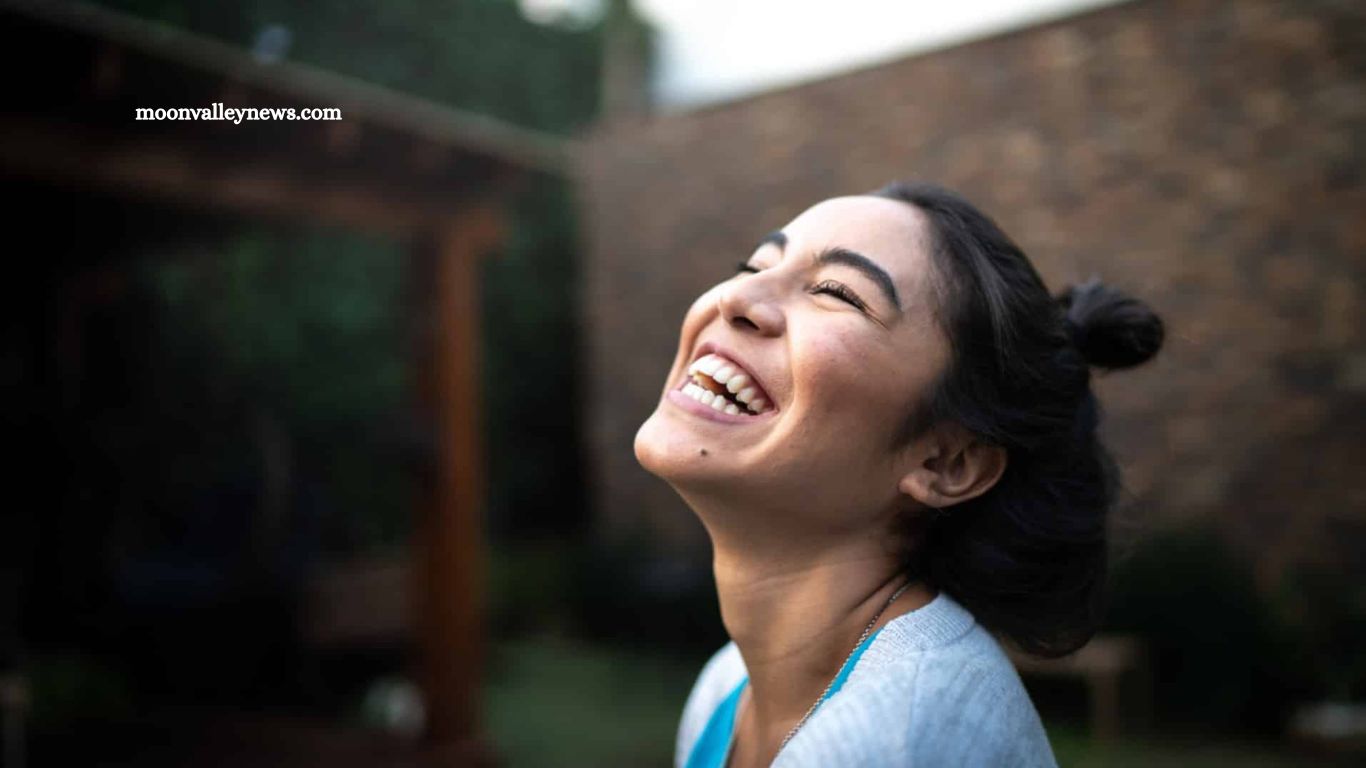Kate Middleton Catherine, Princess of Wales, has shared candid reflections on her life following a cancer diagnosis and months of treatment, marking a rare and deeply personal disclosure from a senior member of the British royal family.
The 43-year-old royal revealed in March 2024 that she had been diagnosed with cancer following abdominal surgery and was undergoing chemotherapy. Though she later announced the disease was in remission, Catherine admitted during a recent public appearance that recovery has been far from straightforward.
Speaking during a visit to Colchester Hospital in southeast England on July 2, the Princess described her experience as a “really, really difficult” period.
“You put on a sort of brave face, stoicism through treatment,” she said. “Treatment’s done, then it’s like, ‘I can crack on, get back to normal,’ but actually [that’s not the case].”
Catherine, who has not disclosed the type of cancer she was diagnosed with, acknowledged that the journey toward healing is still ongoing. “Finding a ‘new normal’ takes time,” she shared. “It’s a roller coaster—it’s not smooth, like you expect it to be. But the reality is you go through hard times.”
She also noted that life at home has changed significantly, saying she can no longer “function normally” in the way she once did.
Her diagnosis follows similar revelations from other members of the royal family. King Charles III and Sarah Ferguson, Duchess of York, have also shared their own battles with cancer in recent months.
Read More: Elon Musk Seeks Financial Support for xAI from His Other Ventures
Catherine, who is married to Prince William, the heir to the British throne, stepped back from public duties in early 2024 after undergoing abdominal surgery initially believed to be unrelated to cancer. Subsequent testing revealed the disease, which she described at the time as “a huge shock.”
“William and I have been doing everything we can to process and manage this privately for the sake of our young family,” she said in her March statement. The couple share three children: Prince George, 11, Princess Charlotte, 10, and Prince Louis, 7.
In response to Catherine’s announcement, Dr. Karen Knudsen, CEO of the American Cancer Society, underscored how a cancer diagnosis can affect an entire household.
“We know the challenge of explaining a cancer diagnosis to any family member, especially children,” Knudsen told Healthline. “Depending on their age and maturity level, children will experience the news of a diagnosis differently.”
As Catherine continues to adjust to life after treatment, her openness offers a rare glimpse into the emotional toll of serious illness—and a reminder that healing, both physical and emotional, takes time.
Princess Kate Shares Candid Health Update: “There Are Good Days and Bad Days”
In a heartfelt message shared in June 2024, Catherine, Princess of Wales, offered a personal update on her ongoing cancer treatment, reflecting on the physical and emotional challenges she continues to face.
“I am making good progress,” she wrote in an Instagram post, “but as anyone going through chemotherapy will know, there are good days and bad days.”
Catherine explained that while her treatment remains ongoing and is expected to continue for several more months, she is learning to navigate the unpredictable rhythms of recovery.
“On those bad days, you feel weak, tired, and you have to give in to your body resting,” she said. “But on the good days, when you feel stronger, you want to make the most of feeling well.”
The 43-year-old royal also acknowledged how her diagnosis has forced her to slow down and adopt a new perspective on healing.
“I am learning how to be patient, especially with uncertainty—taking each day as it comes, listening to my body, and allowing myself to take this much-needed time to heal,” she wrote.
Despite the challenges, Catherine confirmed she would be making her first public royal appearance of the year at Trooping the Colour, the annual parade celebrating King Charles III’s official birthday. The event marked a significant moment in her gradual return to public life.
Her openness about the highs and lows of cancer treatment has resonated with many, offering a glimpse into her resilience as both a royal and a mother navigating illness with grace and honesty.
What We Know About Princess Kate’s Cancer Diagnosis
While Catherine, Princess of Wales, has chosen to keep many details of her cancer diagnosis private, a few key facts have been publicly confirmed. Here’s what is known so far about her condition and the ongoing treatment journey.
Earlier this year, the Princess underwent major abdominal surgery for a condition initially believed to be noncancerous. The surgery was reportedly successful; however, post-operative testing revealed the presence of cancer. The exact type and stage of the disease have not been disclosed.
Following the diagnosis, Catherine began a course of preventive chemotherapy, based on guidance from her medical team. In a video message shared in March 2024, she described the news as a “huge shock,” adding that she and Prince William were focused on processing it privately for the sake of their young family.
Medical experts emphasize that the term “abdominal surgery” covers a wide range of possibilities.
“The information regarding GI surgery is a very generalized statement,” said Dr. Cathy Eng, co-director of GI Oncology and director of the Young Adult Cancers Program at Vanderbilt University, in an interview with Healthline. “The abdominal cavity contains not only the gastrointestinal tract but also the urinary tract and the female reproductive organs. Abdominal surgery may involve the colon, rectum, stomach, liver, gallbladder, pancreas, small bowel, bladder, kidneys, ovaries, and more.”
Dr. Eng stressed that without more specific details, it is not possible—or appropriate—to speculate on what type of cancer the Princess may have.
Dr. Steven Lee-Kong, chief of colorectal surgery at Hackensack University Medical Center, similarly noted that based on what’s been publicly shared, the cancer may have originated in one of the abdominal organs, but no conclusions should be drawn without further information.
Statistically, the most common cancers affecting women include breast, lung, colorectal, endometrial, and melanoma, according to recent data from the American Cancer Society (ACS). Of these, colorectal cancer is the most likely to be associated with the abdomen, said Eng. Still, she cautioned against making assumptions.
“We do not recommend stereotyping individuals based on appearance alone,” Eng said. “Cancer can impact anybody at any age. I think this is a warning sign to all young individuals to pay attention to their bodies.”
For now, the Princess of Wales continues her treatment and recovery largely out of the public eye, choosing to prioritize her health and her family. Her openness, though limited, has sparked broader conversations around cancer awareness, early detection, and the importance of taking symptoms seriously—regardless of age or status.
Why Early Cancer Detection Matters—Especially for Young Adults
Cancer is often perceived as a disease that primarily affects older individuals. But recent data from the American Cancer Society (ACS) reveals a troubling trend: cancer rates are steadily rising among young adults aged 18 to 49.
According to the ACS’s 2024 Cancer Statistics, young adults were the only age group to experience a consistent increase in cancer incidence between 1995 and 2020. During this 25-year span, the rate of cancer among young men and women has grown by approximately 1% each year.
The most common types of cancer in this age group include:
- Breast cancer
- Thyroid cancer
- Melanoma of the skin
- Testicular cancer
- Colorectal cancer
- Hodgkin lymphoma
These findings underscore the need for heightened awareness and early intervention, particularly among young adults who may not see themselves at risk.
“I think this is a warning sign to all young individuals to pay attention to their bodies,” said Dr. Cathy Eng, co-director of GI Oncology at Vanderbilt University. “If a symptom does not resolve within less than two weeks, you should bring it to the attention of your physician.”
The Critical Role of Early Detection
Early detection can significantly improve survival rates and long-term outcomes. When cancer is diagnosed at an early stage, treatment is typically more effective and less aggressive.
“We know that the sooner cancers are diagnosed and the earlier the stage is at diagnosis, the better patients do overall,” said Dr. Steven Lee-Kong, chief of colorectal surgery at Hackensack University Medical Center. “Early detection, enhanced by age-appropriate screening, leads to improved survival and better overall outcomes.”
Dr. Adam Booth, assistant professor of pathology at Washington University School of Medicine in St. Louis, agrees.
“Early detection through screening is our strongest defense against cancer progression,” Booth explained. “It’s the only way to identify cancer before the disease advances, symptoms develop, and prognosis declines.”
He cited colonoscopy screenings as one example: many patients with early-stage colorectal cancer are asymptomatic, meaning the cancer would go undetected without proactive screening.
Barriers to Detection in Young Adults
Unfortunately, young adults are less likely to undergo routine screenings and may delay seeking medical attention. Contributing factors include lack of insurance, limited access to preventive care, and the general misconception that cancer is rare in their age group. This often results in cancers being diagnosed at later, more dangerous stages.
Catherine, Princess of Wales: A Case in Point
Princess Catherine’s recent health journey highlights the emotional and physical challenges of cancer treatment—and the value of early medical intervention. After undergoing abdominal surgery in early 2024, which was initially believed to be unrelated to cancer, further testing revealed a diagnosis that required chemotherapy.
Though the specific type of cancer has not been disclosed, her medical team opted for preventive (adjuvant) chemotherapy, a post-surgical treatment aimed at reducing the risk of cancer recurrence.
“The role of adjuvant chemotherapy is to improve disease-free survival, overall survival, and reduce the risk of recurrent disease,” said Dr. Eng.
Because chemotherapy is a systemic treatment—targeting the entire body—it can cause a range of side effects, including fatigue, nausea, infection, and hair loss. Managing these side effects effectively requires close coordination with an oncology team.
“I cannot overemphasize the importance of communication between patients and their care team,” Eng added. “Supportive medications are available to help manage side effects and maintain quality of life during treatment.”
A Public Reminder
As Princess Catherine continues her recovery, she has used her platform to share candid reflections on the experience—offering reassurance and solidarity to others navigating similar challenges.
“I am making good progress,” she said in a public statement. “But as anyone going through chemotherapy will know, there are good days and bad days… I am learning how to be patient, especially with uncertainty—taking each day as it comes, listening to my body, and allowing myself to take this much-needed time to heal.”
Her openness has helped shine a spotlight on a vital message: cancer does not discriminate by age, and early detection can make all the difference.
Why Early Cancer Detection Is More Important Than Ever
Rising cancer rates among young adults highlight the need for awareness, screening, and open dialogue
In recent years, cancer has increasingly become a concern for younger populations—especially those between the ages of 18 and 49. According to the American Cancer Society’s (ACS) 2024 Cancer Statistics, young adults were the only age group to experience a rise in cancer incidence between 1995 and 2020, with annual increases of approximately 1% in both men and women.
Some of the most common cancers affecting this age group include:
- Breast cancer
- Thyroid cancer
- Melanoma of the skin
- Testicular cancer
- Colorectal cancer
- Hodgkin lymphoma
While cancer is often associated with older age, these numbers tell a different—and increasingly urgent—story.
“I think this is a warning sign to all young individuals to pay attention to their bodies,” said Dr. Cathy Eng, co-director of GI Oncology at Vanderbilt University. “If a symptom does not resolve within less than two weeks, you should bring it to the attention of your physician.”
Early Detection Saves Lives
Doctors agree that the earlier cancer is detected, the more effectively it can be treated. Unfortunately, younger adults are more likely to be diagnosed at later stages—often due to delays in seeking care, a lack of regular screening, or insufficient access to health insurance.
“We know that the sooner cancers are diagnosed and the earlier the stage is at diagnosis, the better patients do overall,” said Dr. Steven Lee-Kong, chief of colorectal surgery at Hackensack University Medical Center. “Early detection, enhanced by age-appropriate screening, leads to improved survival and better overall outcomes.”
Dr. Adam Booth, assistant professor of pathology at Washington University School of Medicine in St. Louis, emphasized that screening plays a crucial role—even when no symptoms are present.
“Early detection through screening is our strongest defense against cancer progression,” Booth explained. “It is the only way to prevent or identify cancer before the disease advances, symptoms develop, and prognosis declines.”
He pointed to colorectal screenings as a key example. Many patients diagnosed through routine colonoscopies had no symptoms at all—proving that proactive testing can be the difference between early treatment and late-stage illness.
The Royal Family’s Experience with Cancer
Recent cancer announcements from members of the British royal family have brought global attention to the realities of cancer and the importance of early intervention. In early 2024, King Charles III revealed he was receiving treatment for an unspecified cancer discovered during a procedure for an enlarged prostate. Shortly after, Sarah Ferguson, Duchess of York, shared that she was recovering from melanoma, which was caught during reconstructive surgery following a mastectomy for breast cancer.
Most recently, Catherine, Princess of Wales, disclosed her own cancer diagnosis and the challenges of undergoing preventive (adjuvant) chemotherapy following abdominal surgery. The exact type of cancer has not been made public, but the princess has spoken candidly about the toll of treatment.
“I am making good progress,” she wrote in a June 2024 health update. “But as anyone going through chemotherapy will know, there are good days and bad days… I am learning how to be patient, especially with uncertainty—taking each day as it comes, listening to my body, and allowing myself to take this much-needed time to heal.”
Her openness has resonated with families worldwide—especially those navigating how to discuss illness with children.
Talking to Kids About Cancer
For parents, one of the most difficult aspects of a cancer diagnosis is explaining the situation to their children. Catherine and Prince William are parents to three young children—Prince George, Princess Charlotte, and Prince Louis—making the emotional impact of her diagnosis particularly poignant.
The ACS offers clear, age-sensitive communication strategies for families facing cancer. These include:
- Explaining the type of cancer and what treatments may involve
- Being honest about changes in the parent’s appearance or energy
- Encouraging children to ask questions and express their emotions
- Striking a balance between providing enough information without overwhelming them
“Children between the ages of 7 and 12 may have a hard time telling an adult about any distress they are experiencing,” said Dr. Karen Knudsen, CEO of the American Cancer Society. “They might also be afraid that what they say could upset loved ones.”
Knudsen commended Princess Catherine for her transparency, adding:
“We recognize the importance of respecting the privacy of the Prince and Princess of Wales and their family as they navigate this challenging time. We wish them all the best as Princess Catherine continues to focus on her treatment and recovery.”
A Call to Action
As cancer diagnoses rise in younger adults, Catherine’s story and others like it serve as a powerful reminder: early detection matters. Regular checkups, attention to unexplained symptoms, and open conversations with doctors can make a life-saving difference.
And while cancer can feel isolating, no one has to face it alone.
Frequently Asked Questions
Why is early cancer detection so important?
Early detection increases the chances of successful treatment. When cancer is found at an early stage, it’s often more treatable and less likely to have spread. This typically leads to better survival rates, fewer complications, and improved quality of life.
Are cancer rates really rising in young adults?
Yes. According to the American Cancer Society’s 2024 Cancer Statistics, cancer incidence in adults aged 18 to 49 has steadily increased by about 1% per year between 1995 and 2020. This trend makes early detection and awareness particularly critical for younger populations.
Why are cancers in young adults often diagnosed later?
Young adults are less likely to undergo routine screenings and may lack access to healthcare or insurance. Additionally, both patients and doctors may dismiss early symptoms due to a perceived lower risk of cancer in this age group.
What is adjuvant (preventive) chemotherapy?
Adjuvant chemotherapy is given after surgery to eliminate any remaining cancer cells and reduce the risk of recurrence. It’s often used when the primary tumor has been removed, but there’s a concern that microscopic cancer may remain elsewhere in the body.
Did Princess Catherine (Kate Middleton) undergo chemotherapy?
Yes. After abdominal surgery in early 2024, Catherine, Princess of Wales, was diagnosed with cancer and began preventive (adjuvant) chemotherapy. While the specific type of cancer hasn’t been disclosed, her treatment is ongoing and aims to reduce the risk of recurrence.
Conclusion
The rise in cancer diagnoses among young adults is a growing public health concern that underscores the importance of early detection, education, and proactive healthcare. As Princess Catherine’s experience has shown, cancer can affect anyone—regardless of age, status, or appearance. Her openness about the challenges of diagnosis and treatment has helped spark vital conversations around listening to your body, seeking timely medical advice, and supporting one another through illness.







